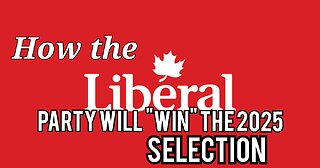Premium Only Content

Trudeau to introduce Halal mortgages, also known as a Sharia-compliant mortgage, in Canada
A Halal mortgage, also known as a Sharia-compliant mortgage, is a financial product designed for Muslim homebuyers that adheres to Islamic principles. In Islamic finance, the charging or paying of interest, known as "usury" in English, is prohibited. Instead, Islamic finance operates on the principle of profit sharing or risk-sharing arrangements.
Here's how a Halal mortgage typically works:
Property Purchase: Instead of lending money to the homebuyer to purchase a property, the financial institution purchases the property on behalf of the homebuyer. This makes the institution the legal owner of the property.
Lease Agreement: The homebuyer then enters into a lease agreement with the financial institution, paying rent to use the property. The rental payments are structured in a way that includes a portion of the rent going towards purchasing equity in the property.
Gradual Ownership: Over time, as the homebuyer makes rental payments, they gradually acquire ownership equity in the property. Once the homebuyer has paid off the entire purchase price plus any administrative fees, they become the full owner of the property.
No Interest: Throughout this process, there is no interest charged on the financing. Instead, the financial institution earns a profit from the rental payments and potentially from the eventual sale of the property.
Regarding references to usury in the Quran, Islamic finance principles are derived from Sharia law, which includes guidelines on financial transactions. Usury, or the charging of interest, is explicitly prohibited in several verses of the Quran, such as:
Quran 2:275: "Those who devour usury will not stand except as stand one whom the Satan has driven to madness by (his) touch. That is because they say: 'Trade is just like usury,' but Allah hath permitted trade and forbidden usury. Those who after receiving direction from their Lord, desist, shall be pardoned for the past; their case is for Allah (to judge); but those who repeat (The offence) are companions of the Fire: They will abide therein (for ever)."
Quran 3:130: "O ye who believe! Devour not usury, doubled and multiplied; but fear Allah; that ye may (really) prosper."
These verses, among others, form the basis for the prohibition of usury in Islamic finance and underscore the importance of adhering to ethical and equitable financial practices.
Mike Martins seems to be discussing a variety of topics, primarily focusing on the introduction of Halal mortgages in Canada and the implications they may have on the housing market and society as a whole. Here's a breakdown of his main points:
Introduction of Halal Mortgages: Martins mentions the Trudeau government's announcement of Halal mortgages as a means to enable Muslim Canadians and other diverse communities to participate in the housing market.
Concerns about Interest Rates and Inflation: He expresses concerns about interest rates and inflation, suggesting that historically low interest rates have led to inflated housing prices, which could further exacerbate due to rising interest rates to hedge against inflation.
Discussion on Islam and Religious History: Martin delves into a discussion about the history of Islam, including the selection of the Quran, linguistic changes over time, and historical events like the building of the Kaaba in Mecca.
Critique of Money Laundering and Housing Market: He criticizes the impact of money laundering, particularly from Chinese sources, on the Canadian housing market. He suggests that this influx of dirty money is artificially inflating housing prices and pricing out middle-class Canadians.
Personal Reflections and Opinions: Martin shares his personal views on religion, culture, and societal issues, drawing from his own experiences and observations.
Overall, Martins commentary touches on socio-economic, religious, and political issues surrounding the introduction of Halal mortgages and their broader implications in Canada's housing market and society.
Halal mortgage, Sharia-compliant finance, Islamic finance, Usury prohibition, Quranic finance, Sharia law, Muslim homebuyers, Financial ethics, Equity-based finance, Profit-sharing arrangements, Islamic principles, Interest-free loans, Sharia-compliant banking, Rental payments, Property ownership, Sharia-compliant investments, Financial transactions, Ethical finance, Islamic banking, Islamic economics, Sharia compliance, Home financing, Equity participation, Islamic law, Islamic jurisprudence, Islamic mortgages, Usury prohibition in Islam, Quranic principles, Islamic home ownership, Halal investments, Islamic financial products, Islamic ethics, Islamic jurisprudence in finance, Mortgage alternatives
-
 13:33
13:33
Mike Martins Channel
8 days ago $0.09 earnedHow the Liberal Party "will" win the 2025 Slection In Canada via Public Sector vote, Mass Deception
5242 -
 1:08:09
1:08:09
Donald Trump Jr.
12 hours agoFBI Dream Team, Plus Taking Your Questions Live! | Triggered Ep.219
196K255 -
 7:32:37
7:32:37
Akademiks
11 hours agoDrake and PartyNextDoor '$$$4U' Album Sells 250K first week. BIG AK IS BACK.
116K11 -
 3:12:08
3:12:08
MyronGainesX
10 hours ago $31.49 earnedDan Bongino Named As Deputy Director Of FBI And CPAC Recap
94K27 -
 3:12:31
3:12:31
vivafrei
10 hours agoBarnes Live from Seattle - Defending Benshoof in a Case that is CRAY CRAY!
143K45 -
 2:12:12
2:12:12
Robert Gouveia
10 hours agoLiberals EXPLODE over Elon's Email; Lawsuits FLY; Sanctions?? Congrats Dan!
110K36 -
 1:33:36
1:33:36
Redacted News
11 hours agoBREAKING! PUTIN LAUNCHES MASSIVE OFFENSIVE IN UKRAINE AS EUROPEAN LEADERS PUSH FOR MORE WAR
187K246 -
 44:39
44:39
Kimberly Guilfoyle
11 hours agoBetter Days Ahead for the FBI, Live with Asm Bill Essayli & John Koufos | Ep.199
118K27 -
 1:40:29
1:40:29
In The Litter Box w/ Jewels & Catturd
1 day agoWhat Did You Do Last Week? | In the Litter Box w/ Jewels & Catturd – Ep. 748 – 2/24/2025
155K41 -
 23:34
23:34
Stephen Gardner
11 hours ago🔥CNN PANICS over $5000 DOGE Dividend | Trump Orders bigger Audits
98.3K163